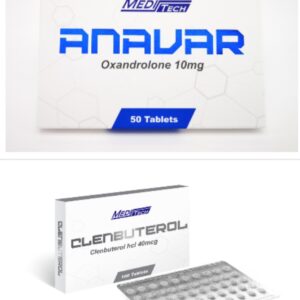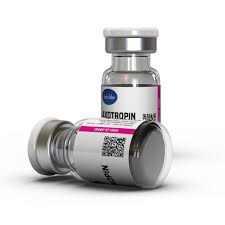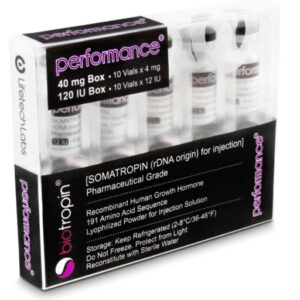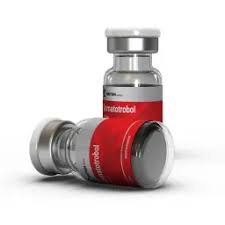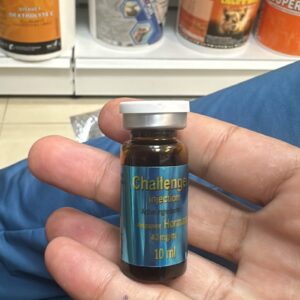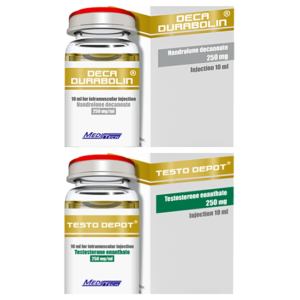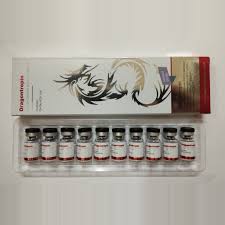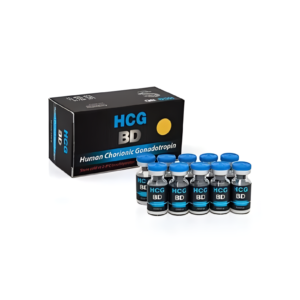Human Growth Hormone (HGH)
Human Growth Hormone (HGH) is a peptide hormone that plays a key role in growth, metabolism, and overall development in the body. It is produced by the pituitary gland, located at the base of the brain. HGH stimulates growth in almost all tissues, including bones, muscles, and organs, especially during childhood and adolescence. Here’s a deeper look at its functions and uses:
Functions of HGH:
-
Growth and Development: During childhood and adolescence, HGH promotes physical growth and the development of tissues, especially bones and muscles. This is why it’s essential for normal growth during the early stages of life.
-
Regulates Metabolism: HGH plays a significant role in regulating various aspects of metabolism, including protein synthesis, fat breakdown, and glucose metabolism. This is crucial for maintaining energy balance and overall health.
-
Cell Regeneration and Repair: HGH also supports cell regeneration and repair, making it important for healing after injury and maintaining healthy tissue.
-
Bone Density: HGH helps maintain bone density by stimulating the production of insulin-like growth factor 1 (IGF-1) in the liver, which then promotes the growth of bone and cartilage cells.
-
Muscle Growth: HGH contributes to muscle tissue growth by stimulating protein synthesis and encouraging muscle cell regeneration.
Medical Uses of HGH:
-
Growth Hormone Deficiency: In both children and adults who have low levels of HGH, it may be prescribed to stimulate growth and improve body composition.
-
Turner Syndrome: A genetic disorder that causes short stature can be treated with HGH to help increase growth in affected individuals.
-
Chronic Kidney Disease: Children with this condition may receive HGH to help with growth.
-
Prader-Willi Syndrome: A genetic condition that causes obesity and short stature can also be managed with HGH therapy.
-
Muscle Wasting Diseases: HGH may be used to help prevent or treat muscle loss due to conditions like HIV/AIDS.
HGH and Anti-Aging:
In recent years, HGH has gained popularity for its potential anti-aging effects, although this remains controversial and is not widely supported by scientific evidence. Some believe that HGH can improve skin elasticity, reduce fat, and increase lean muscle mass, but the clinical evidence is mixed.
Side Effects of HGH:
While HGH is generally safe when used under medical supervision, inappropriate use or abuse (such as for bodybuilding or anti-aging purposes) can lead to serious side effects:
-
Joint and muscle pain
-
Swelling and edema (fluid retention)
-
Carpal tunnel syndrome
-
Increased risk of diabetes
-
Enlarged organs (like the heart)
-
Acromegaly (a condition where bones and tissues, particularly in the hands, feet, and face, enlarge)
HGH Abuse and Legal Considerations:
Using HGH for performance enhancement, bodybuilding, or anti-aging is illegal without a prescription in many countries. The use of HGH in sports is banned by organizations like the World Anti-Doping Agency (WADA).
HGH Supplements:
There are various HGH supplements marketed as natural alternatives, including amino acids and herbs that supposedly stimulate the body’s production of HGH. However, these products have limited scientific backing, and their effectiveness is highly debated. Most reputable studies suggest that HGH production can only be significantly altered by prescription HGH therapy.
Showing 1–12 of 23 results
-
Human Growth Hormone (HGH)
(Anavar + Clenbuterol)
Original price was: $160.00.$150.00Current price is: $150.00. Add to cart -
Human Growth Hormone (HGH)
AXOTROPIN
Original price was: $240.00.$200.00Current price is: $200.00. Add to cart -
Human Growth Hormone (HGH)
Biotropin Performance HGH 120iu
Original price was: $900.00.$780.00Current price is: $780.00. Add to cart -
Human Growth Hormone (HGH)
BUY SOMATOTROBOL
Original price was: $240.00.$200.00Current price is: $200.00. Add to cart -
Human Growth Hormone (HGH)
Challenger Injection 10ml
Original price was: $70.00.$65.00Current price is: $65.00. Add to cart -
Human Growth Hormone (HGH)
Deca-Testosterone cycle
Original price was: $250.00.$200.00Current price is: $200.00. Add to cart -
Human Growth Hormone (HGH)
DRAGONTROPIN 100IU
Original price was: $300.00.$250.00Current price is: $250.00. Add to cart -
Human Growth Hormone (HGH)
Evogen HGH 100 IU
Original price was: $250.00.$200.00Current price is: $200.00. Add to cart -
Human Growth Hormone (HGH)
GENOTROPIN HGH 36 IU (12MG)
Original price was: $250.00.$200.00Current price is: $200.00. Add to cart -
Human Growth Hormone (HGH)
GENTROPIN 210 IU KIT HGH
Original price was: $300.00.$250.00Current price is: $250.00. Add to cart -
Human Growth Hormone (HGH)
HCG BD
Original price was: $500.00.$460.00Current price is: $460.00. Add to cart -
Human Growth Hormone (HGH)
HUMATROPE 72IU
Original price was: $400.00.$350.00Current price is: $350.00. Add to cart

